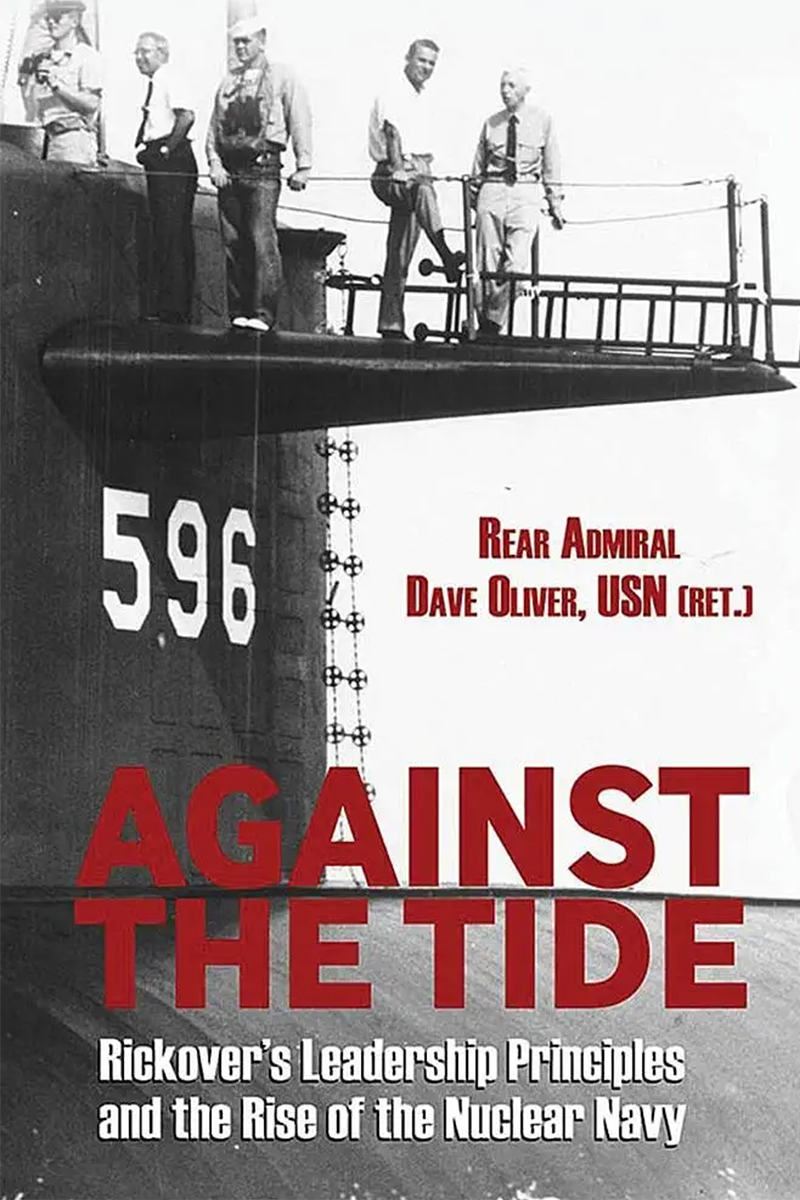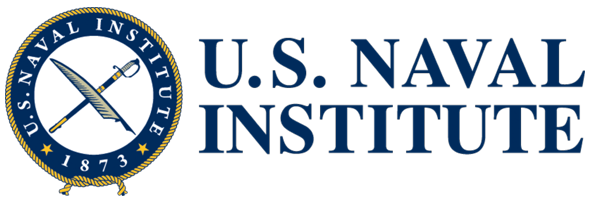AGAINST THE TIDE
Rickover’s Leadership Principles and the Rise of the Nuclear Navy

Against the Tide is not a biography or a memoir. It instead discusses the interaction of great personalities and how leadership changed our history, the period is the decades after World War II, when the Soviet Union was an economic, military and emotional threat. Admiral Rickover’s nuclear submarines were one of the major tools that Presidents successfully used in this fight.
To make these weapons work, Rickover had to overcome the Navy’s strong aversion to change. Specifically, he needed to eliminate the diesel officer submarine community (the same one popularly credited with winning the war just completed in the Pacific), and replace these heroes with young whippersnappers armed with slide rules.
But how was Rickover ever going to infuse his young engineers with the other essential facet of submarining – the bravery it takes to penetrate minefields, ice fields, and reattack under fire? This was the real challenge everyone knew Rickover faced. No one wanted to return to the days of yesteryear. It was not much of a secret that the submarine force had spent the first several years of World War II wallowing in ineffectiveness until the commanders without true steel in their hearts had been weeded out.
As will be documented in Against the Tide, for a period in the fifties, the Air Force space program could not get a missile off the ground and the Army was tied up with enforcing desegregation in Selma, Alabama. By exception, Rickover and nuclear submarines became the National and International poster child of American success. The Admiral was on the cover of Time and Life magazines. For nearly three decades Rickover was one of the most easily recognized military personnel in the world, and goodness knows, he was never loath to give a friendly reporter a quote.
However, time marks even the hardest rock and, after the longest career in the history of the Navy, Rickover was finally forced to retire. Cruelly, he died before the Cold War was won and his role could be fairly recognized. By that time, his numerous enemies were eager to bury his memory and unwilling to credit his achievements.
Rickover, an essentially private man, never did write an autobiography and never “wasted his time” explaining. As a result, his unique management method, the same one that built and ran a most complex American industry has been largely ignored by the business world and generally dismissed (outside the nuclear submarine community). Like a good neighborhood butcher in Rickover’s Chicago childhood, this book is an effort to put a thumb on the scale to made sure his good management techniques receive their proper recognition.
Buy the Book
Reviews
"To whom will this book appeal? Military officers and cadets (especially naval officers and cadets, particularly those of the U.S. Navy), but also administrators in the civilian departments of the U.S. Government and state and local governments; and, outside of government, business executives and directors of museums, libraries, and charitable organizations; current and former submariners of any rank; current and former officers and crewmen who serve or served aboard nuclear-powered aircraft carriers; and military history buffs."
—Notes on Culture
"[Against the Tide] provides tips for reformers, applicable to every kind of organization. It is one of the best books about managing I have read.... Rickover's most important gift to us: removing our largest excuse for inaction."
—Fabius Maximus



